The views expressed in our content reflect individual perspectives and do not represent the authoritative views of the Baha'i Faith.
Consciousness: awareness or perception of an inward psychological or spiritual fact: intuitively perceived knowledge of something in one’s inner self. – Webster’s Dictionary
…in the highest reaches of evolution, maybe, just maybe, an individual’s consciousness does indeed touch infinity… – Ken Wilber
Quick, think of a number between one and ten. Got it? The fact that you can do that proves you’re human. Why? Well, humans have the unique and remarkable gift of consciousness, the inner knowledge of ourselves as sentient beings, which gives us the ability to think in abstract terms.
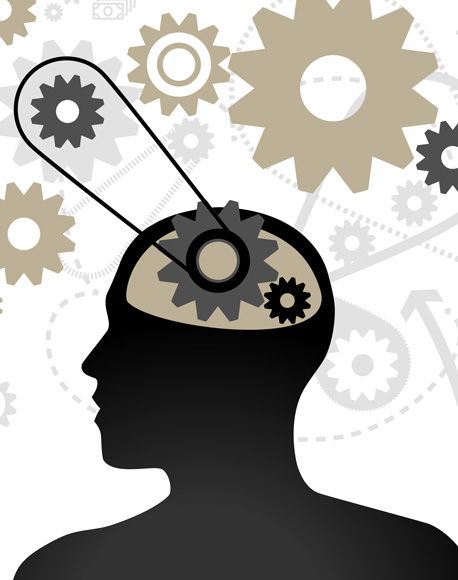 Every great accomplishment of human civilization came from our consciousness.
Every great accomplishment of human civilization came from our consciousness.
Philosophers and neuroscientists have all tried to define that elusive human quality called consciousness, with differing degrees of success. Most, though, would agree that consciousness means we have thoughts, perceptions, feelings and self-awareness. We have an inner life of the mind, the heart and the soul. Our consciousness—the ability to be aware of our awareness—is what makes us human.
That fully-developed awareness of life and the order of the universe, in its highest form, we call enlightenment. This human faculty distinguishes us from everything else in creation:
In the differentiation of life in the world of existence, there are four degrees or kingdoms, — the mineral, vegetable, animal, and human. The mineral kingdom is possessed of a certain virtue which we term cohesion. The vegetable kingdom possesses cohesive properties plus the power of growth or power augmentative. The animal kingdom is possessed of the virtues of the mineral and vegetable plus the powers of the senses. But the animal although gifted with sensibilities is utterly bereft of consciousness, absolutely out of touch with the world of consciousness and spirit. The animal possesses no powers by which it can make discoveries which lie beyond the realm of the senses. It has no power of intellectual origination. For example, an animal located in Europe is not capable of discovering the continent of America. It understands only phenomena which come within the range of its senses and instinct. It cannot abstractly reason out anything. The animal cannot conceive of the earth being spherical or revolving upon its axis. It cannot apprehend that the little stars in the heavens are tremendous worlds vastly greater than the earth. The animal cannot abstractly conceive of intellect. Of these powers it is bereft. Therefore these powers are peculiar to man and it is made evident that in the human kingdom there is a reality of which the animal is minus. What is that reality? It is the spirit of man. By it man is distinguished above all the other phenomenal kingdoms. Although he possesses all the virtues of the lower kingdoms he is further endowed with the spiritual faculty, the heavenly gift of consciousness. – Abdu’l-Baha, Foundations of World Unity, pp. 90-91.
Because consciousness exists, the philosophers have said, a greater consciousness, an ultimate source, must have created it. Here’s the logic path of that reasoning for the existence of a Creator, what philosophers call the argument from consciousness:
Consciousness makes us human
Our consciousness must have an origin
Nothing else in nature has a human consciousness
By definition, the part cannot possess anything not existent in the whole
We are part of a greater whole than nature
That greater whole can only be represented by a Higher Consciousness.
This proof of the existence of a Creator has a particularly subtle and insightful logic behind it. In a letter to the renowned Swiss scientist Auguste Forel, Abdu’l-Baha explains:
…the mind proveth the existence of an unseen Reality that embraceth all beings, and that existeth and revealeth itself in all stages, the essence whereof is beyond the grasp of the mind. Thus the mineral world understandeth neither the nature nor the perfections of the vegetable world; the vegetable world understandeth not the nature of the animal world, neither the animal world the nature of the reality of man that discovereth and embraceth all things…
Man hath the powers of will and understanding, but nature hath them not. Nature is constrained, man is free. Nature is bereft of understanding, man understandeth. Nature is unaware of past events, but man is aware of them. Nature forecasteth not the future; man by his discerning power seeth that which is to come. Nature hath no consciousness of itself, man knoweth about all things.
…the wise and reflecting soul will know of a certainty that this infinite universe with all its grandeur and perfect order could not have come to exist by itself. – Abdu’l-Baha, Tablet to Auguste Forel, pp. 10-17.
This argument from consciousness advances a particularly modern proof of the existence of God:
A rational proof for the immortality of the spirit is this, that no effect can be produced from a non-existent thing; that is, it is impossible that any effect should appear from absolute nothingness. For the effect of a thing is secondary to its existence, and that which is secondary is conditioned upon the existence of that which is primary. So, from a non-existent sun no rays can shine, from a non-existent sea no waves can surge, from a non-existent cloud no rain can fall; from a non-existent tree no fruit can appear; from a non-existent man nothing can be manifested or produced. Therefore, so long as the signs of existence are visible, they prove that the author of that effect exists…
This question is very subtle: Consider it attentively. This is a rational proof that we are providing, that rational minds may weigh it in the balance of reason and fair-mindedness. – Abdu’l-Baha, Some Answered Questions, newly revised edition, pp. 259-260.


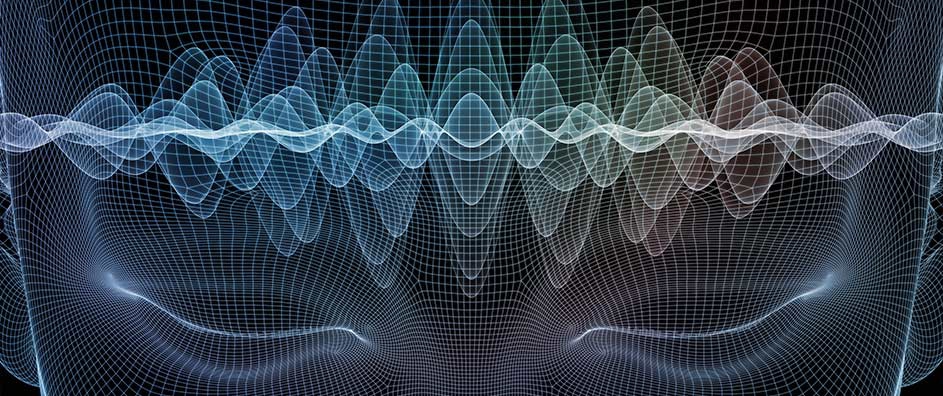

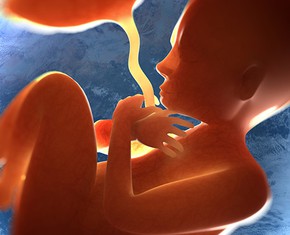



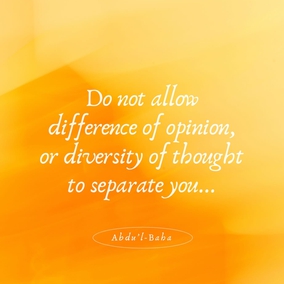

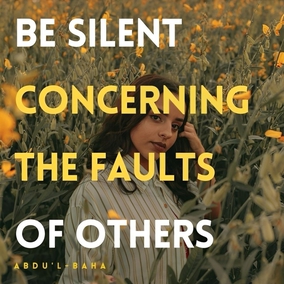





Comments
Sign in or create an account
Continue with Googleor